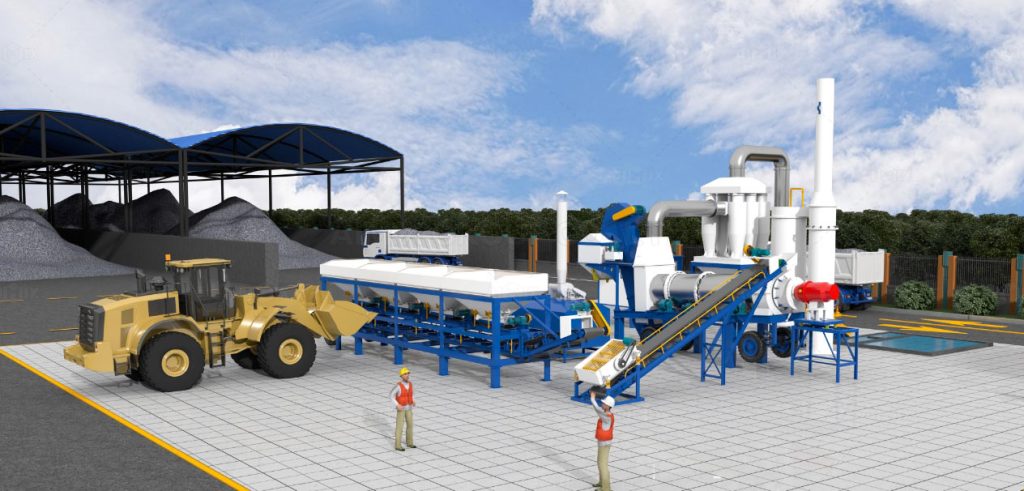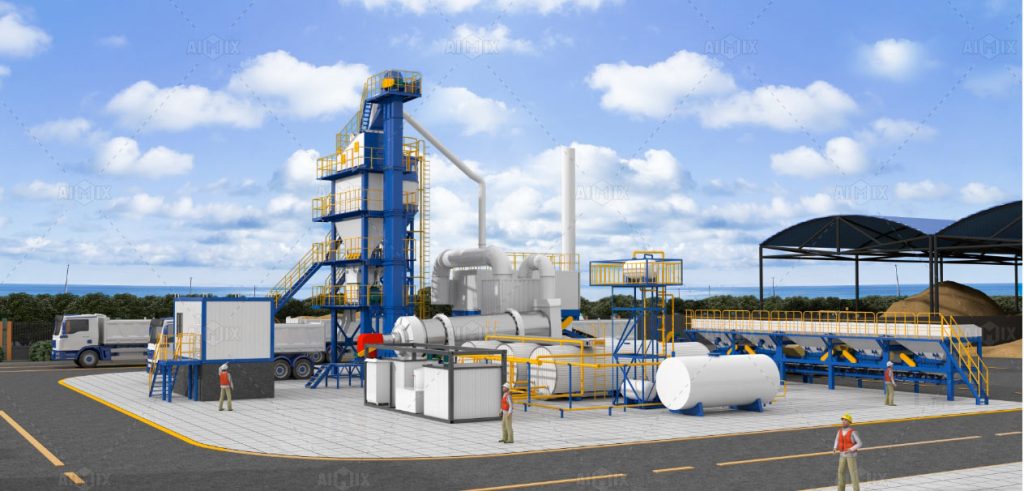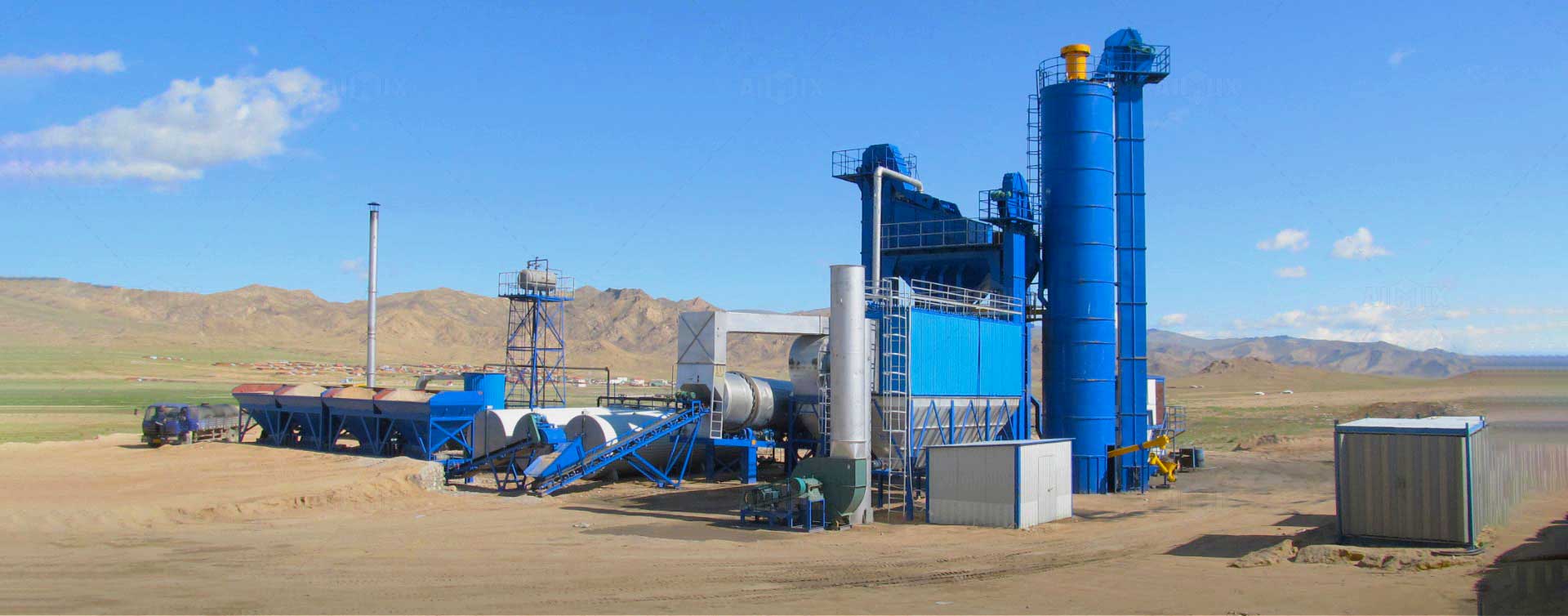Asphalt plants play a crucial role in manufacturing materials for various applications. These materials need to maintain their pliability to ensure proper application, which is why asphalt plants are often located near worksites.
Types of Asphalt Plants
There are two primary types of asphalt plants used in asphalt production:
Batch Plants: These plants produce asphalt in batches, ready to be transported directly to the worksites.
Drum Plants: These plants utilize a continuous process to produce asphalt, which can be stored in heated storage silos for several days.
Both types of asphalt plants share common components, including:
Cold feed bins: These bins accurately measure and deliver different types of aggregates to the drying drum.
Storage tanks: These tanks adhere to strict regulations for spill prevention.
Dryer drum: This drum heats and dries the aggregates. It can be a parallel-flow drum, moving the aggregates in the same direction as the heat, or a counter-flow drum, moving aggregates in the opposite direction to the hot air.
Storage silos: These silos are heated and used for storage.

Distinguishing Features of Batch Plants and Drum Plants
Batch Plant:
In a batch plant, aggregates are dried and heated before being transported to the batch tower. There, they are separated by size using screens and stored in hot bins. Each aggregate is accurately proportioned by weight in an aggregate weigh hopper, then combined with asphalt binder in a pug mill. The precise amount of binder is measured either by a weigh bucket or a pump-and-meter system. The resulting mixture is either stored in a silo or loaded onto trucks for transportation to the worksite. Get plant info here: asphalt-plant-sale

Drum Plant:
In a drum plant, the aggregate and asphalt are dried, heated, and mixed continuously within the drum. The produced asphalt can be stored in silos at the worksite.
Applications
- Portable asphalt plants are suitable for use in ports.
- Asphalt drum mix plants are ideal for road construction and civil engineering projects as they can be easily transported to the worksite for optimal results.
- Bitumen plants are used for city roads and various other applications, including pavement production. They offer high productivity, with a capacity of around 150 tons of bitumen per hour. They are also suitable for laying air strips and other bitumen-based applications.
- Asphalt drum plants for dam construction are particularly beneficial due to their portable characteristics.
- Asphalt drum plant equipment, capable of continuous asphalt mixture production, is perfect for the construction and maintenance of airports and train stations.
- Mobile asphalt plants are excellent for parking lot construction as they are easy to set up and operate.
- Asphalt mixing stations can efficiently produce asphalt mixes for bridge and highway construction.
- Mobile asphalt plants are also great for car park construction due to their ease of setup and operation.
Asphalt plants are equipped with advanced processing capabilities to produce high-quality asphalt mixes for various construction projects. Both batch and drum asphalt mixer plants are user-friendly and constructed from highly durable, abrasion-resistant, and corrosion-resistant materials. They ensure consistent asphalt mixture production while minimizing energy consumption.
